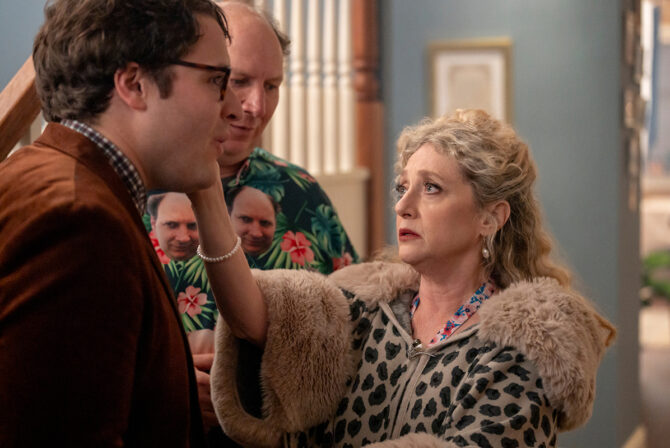This afternoon I attended a concert of the Pittsburgh Symphony Orchestra. The first two pieces on the program were Richard Strauss’ Death and Transfiguration and Don Juan, which both seemed fitting because I was thinking about the man I studied AP Music History with my senior year of high school, Johannes Somary. I was, and am, not a particularly musical person, but I needed a year of an arts requirement to graduate and decided instead of taking a semester of ceramics or drawing, I would do something year long and serious with a trusted faculty member whose course was supposed to be the best of what the school had to offer. I’d hoped it would open new worlds to me, to appreciate and understand music. Obviously, that I am still attending concerts and appreciating music shows Mr. Somary’s lasting impact.
The school I attended was Horace Mann, so you may now know where this piece is going if you’ve been reading the New York Times recently. “This would never happen at Horace Mann,” is what I heard about the school from an Israeli girl visiting my city with a youth delegation. Her mother is a Horace Mann alumna who made aliyah to the north of Israel. This young woman told me that whenever her mother is unhappy with something at her school in Israel–which is often–she tells her that it would never happen at Horace Mann, her paragon of a high-functioning and organized school where poor teachers and administrative mistakes aren’t tolerated. Now, however, there will be an ironic twinge to the words of this mother. Thanks to the diligent reporting of Amos Kamil and the bravery of editor Ariel Kaminer, we all know what did happen at Horace Mann for so many years.
Mr. Somary was an outstanding teacher and conductor of the Glee Club as well as the professional Amor Artis group. But the allegations against him are that he chose one boy each year of the over 30 years he was at the school to have a sexual relationship with. One of those boys was so traumatized by the abusive nature of the relationship that he attempted suicide as a high school senior, and finally succeeded many years later, after a life of struggle. Even though this young man, Benjamin Balter, had the courage to put his allegations in writing in a letter to the school’s headmaster, no disciplinary action was ever taken against Somary. After those allegations in 1994, Somary continued to teach until 2002. I don’t want to imagine how many more victims there were whose fates could have been different had there been people in positions of authority with the bravery to challenge a long-time, prestigious faculty member.
When there were accusations of child molestation at Penn State, I chalked it up to a culture that cared more about winning than anything else and was willing to sacrifice a few boys to keep its coaching staff happy. It was a corrupt and winning-obsessed culture that would tolerate this abuse of vulnerable minors, I assumed. When it happened in the Orthodox youth group, NCSY (National Council of Synagogue Youth), which harbored Baruch Lanner, a man who molested young girls for many years, I also chalked it up to their willingness to put “kiruv“(literally to “bring close,” no pun intended, though it is deeply ironic, meaning bringing teens closer to Judaism and God) above all else, and the disregard of the pain and anguish of these victimized teen girls as evidence of misogyny and callousness to women in this group. And yet, when it happened at an institution I attended, by a man whose classroom I spent a year in, I can’t make any assumptions. I am deeply troubled.
What all these accounts share is that they put some other value above the safety and well-being of the children entrusted to their care. The institutions which harbored sexual predators for many years chose to look the other way while harmful adults injured children because those adults had some value to the institution. The people involved in any institution have to realize that no one, whatever her or his talents may be, should be above the code of common decency (not to say American law) which includes not harming or violating minors.
Keeping the most vulnerable members of society safe is the job of all members of society. Overlooking a person doing evil is something we all bear guilt for. If new worlds have opened to me as the result of my high school education, I hope they are ones where the safety and integrity of vulnerable minors are prized above other values, not the opposite.







